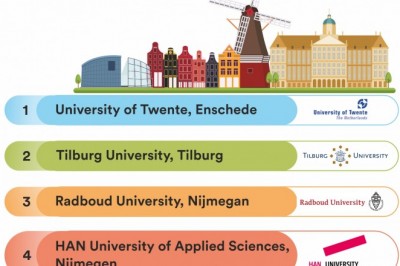views

The chemical industry is a key sector for sustainable development in Europe
The ambition of the EU chemical industry is to lead the global transformation of our industry by providing sustainable European solutions to global challenges such as climate change, energy security and responsible use of natural resources.
Through innovative products and breakthrough technologies, the chemical industry is contributing to major EU policy objectives such as the UN 2030 agenda for sustainable development goals, the Paris Agreement on climate change and the circular economy and clean energy package.
As one of the largest and most diverse industries in the world, we serve almost all sectors of the economy.
According to our estimation, the next 10 years will be the key to improve the cost-effectiveness of low-carbon and circular economy technology. That's why it's crucial to correctly define which economic activities can be considered environmentally sustainable, and this debate will have a significant impact on investment in low-carbon and circular economy technologies.
With this understanding, it will help to ensure that the production and activities of the basic components of environmentally sound products are also classified as "sustainable investment".
The chemical supply chain is a good example of this idea. Chemicals are widely used in low-carbon solutions and technologies. Take the heat insulation board and coating for example. Innovative composite materials make cars and airplanes lighter and more fuel-efficient. Batteries that extend the range of an electric vehicle without charging.
We have developed processes that can turn all kinds of waste into fuel or new chemicals. Some chemical companies have also found a way to capture carbon dioxide as a raw material for the production process. This is just a small sample of the technology we are studying, and we will continue to seek more sustainable solutions through our ambitious R & D projects.
The recent report of the expert group on taxonomic technology also recognized the contribution of the chemical industry. Among the 67 activities that can make a significant contribution to climate change mitigation, four parts are listed (inorganic, organic, fertilizer nitrogen compounds, plastics).
In addition to environmental considerations, we believe that it is equally important to consider the social and economic aspects of any activity in taxonomic proposals. These include appropriate and safe working conditions, decent wages, fair and long-term employment contracts, cooperation with trade unions, lifelong learning, creation of new jobs and investment in research and innovation.
Finally, it is important to recognize that sustainable transition is a dynamic process and, therefore, will evolve over time. In this regard, Cefic proposes to introduce more and more progressive thresholds and indicators to adapt to this transition, so as to ensure that all feasible technologies and innovations with sustainable potential are considered and incorporated into taxonomy.












